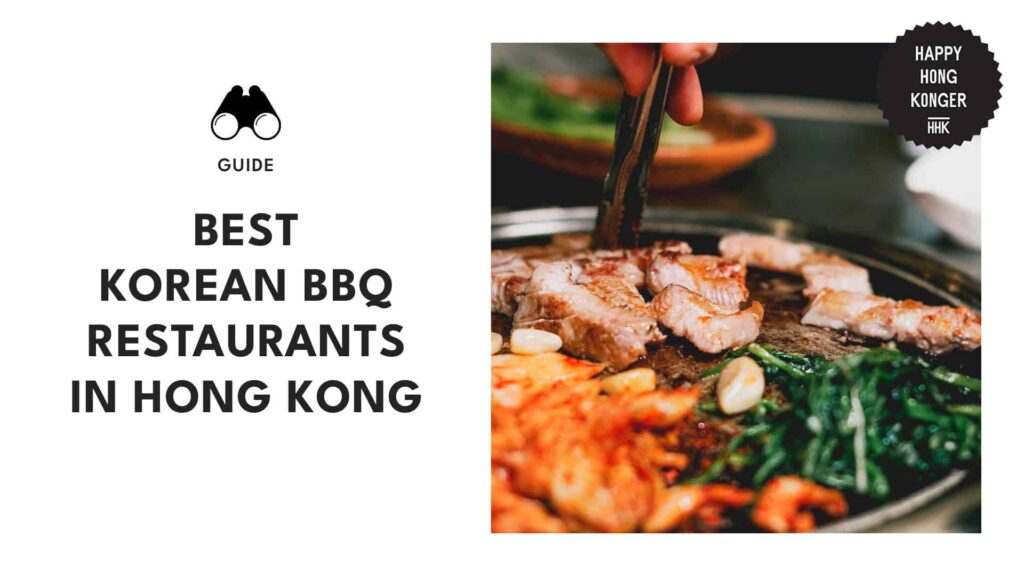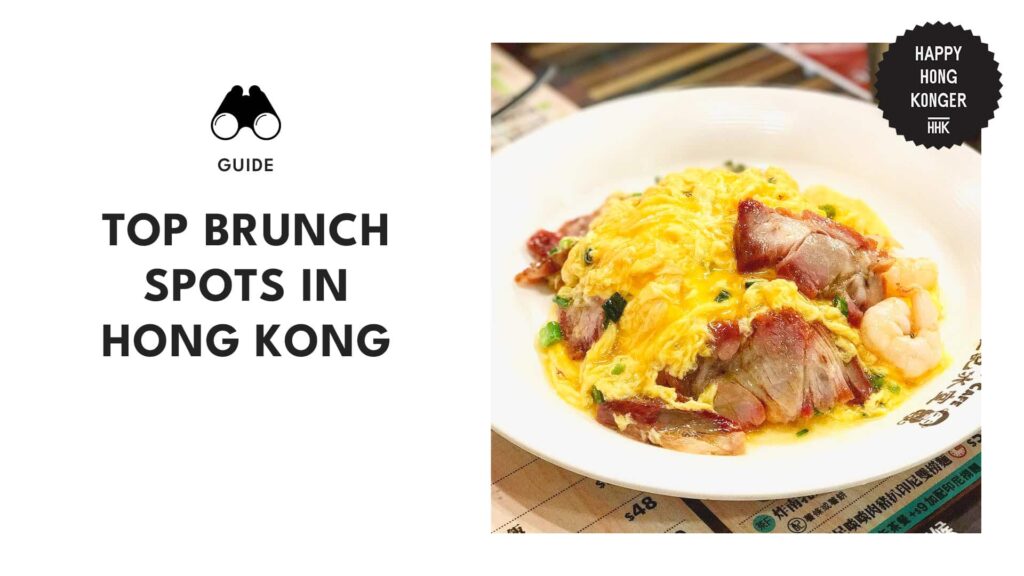Categories > Guides and Tips

What behaviours are considered impolite in Hong Kong?
- What behaviours are considered impolite in Hong Kong?
- Saving Face and Confucian Principles that Guide Etiquette
- The Proper and Improper Etiquette for Non-Verbal Communication
- How do you properly greet people in Hong Kong?
- What are the proper manners and impolite behaviours when dining in Hong Kong?
- Tip 1: Don’t surprise your host
- Tip 2: Don’t outright decline dinner invitations
- Tip 3: Wait for hosts to introduce you in small gatherings
- Tip 4: Let the host eat before you
- Tip 5: Try every dish served
- Tip 6: Avoid eating too much rice
- Tip 7: Make only as much noise as your host does when eating
- Tip 8: Do not use your chopsticks when taking from the serving tray
- Tip 9: Don’t appear too eager to take the last piece or second servings
- Tip 10: Leave some food on your plate
- What are the rules to follow for tea in Hong Kong?
- How do you properly give and receive gifts in Hong Kong?
- Gifts You Should Give in Hong Kong
- Gifts You Shouldn’t Give in Hong Kong
- Lucky Colours and Numbers in Gift-giving
- What behaviours are considered proper and improper in Hong Kong’s business settings?
- Things to Do When Setting Up Meetings
- Things to Do During Meetings
As a visitor to Hong Kong, you might be excited to accomplish your extensive list of things to do in the special administrative region. However, it is best to slow down and familiarise yourself with the cultural norms here.
What behaviours should you look out for in Hong Kong? Let’s jump right in to know the actions to avoid and the reasons behind them!
What behaviours are considered impolite in Hong Kong?
The behaviours considered impolite in Hong Kong generally include those that are contrary to the concepts of saving face, superstitions, and Confucian values. These behaviours include anything that could reduce or diminish one’s reputation.
Some examples of these are disregarding or disrespecting seniority and hosts or hostesses, doing something involving unlucky symbols, or humiliating someone through one’s actions.
There are certain rules and social etiquette to follow depending on the situation. As such, let us discuss them in greater detail.
Saving Face and Confucian Principles that Guide Etiquette
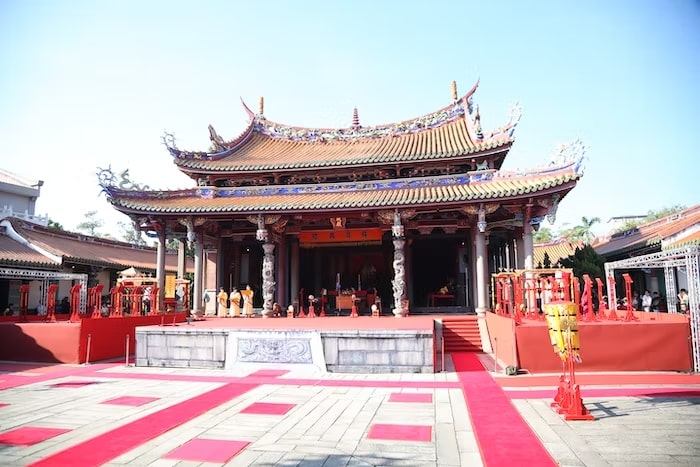
To understand the proper behaviours and etiquette in Hong Kong, we should first understand the underlying concepts that guide them. As long as you remember these concepts, every other social etiquette rule will become second nature to you.
Let us start with the concept of “face.”
Someone’s “face” is a quality representing reputation and dignity. One can give face, save face, or lose face, depending on actions that could affect how people view them.
For example, someone can give face when they show respect or compliments towards another, lose face when patronised or humiliated, or save face by never saying no.
Confucian principles are also prevalent in Hong Kong, as seen in their values of loyalty, duty, honour, and respect for seniority.
As such, you will otice that Hong Kongers always prioritise the elderly and the high-ranking over everyone else.
Although Hong Kong is rich and highly urbanised, a large chunk of the population still adheres to beliefs rooted in superstition and the supernatural too.
As such, there are superstitions you must respect and follow, and they vary in every circumstance.
The Proper and Improper Etiquette for Non-Verbal Communication
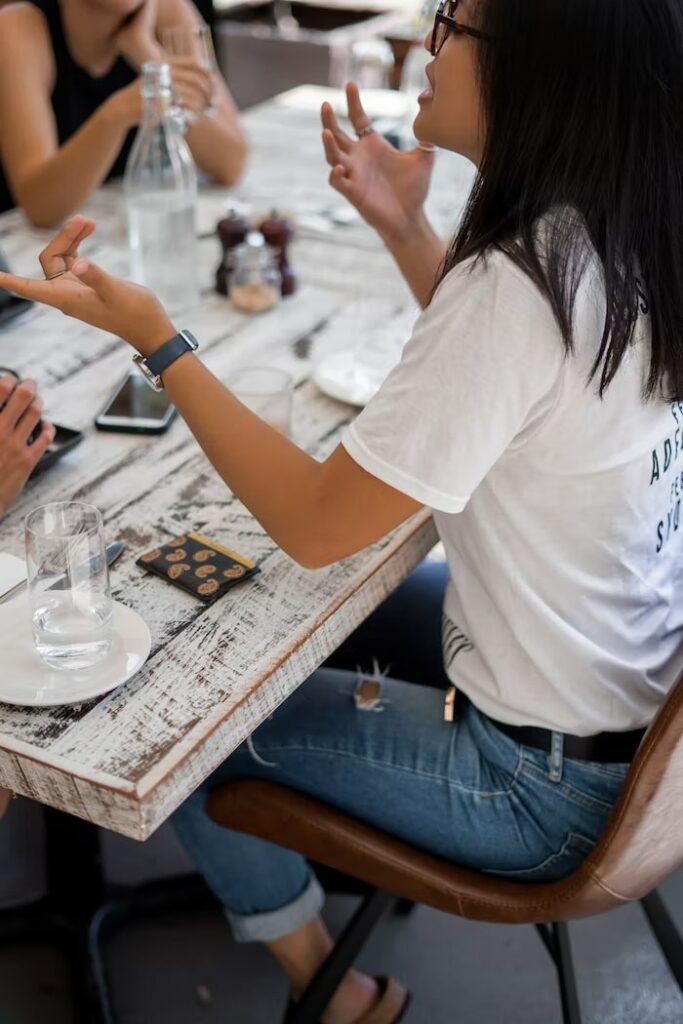
Hong Kongers are generally more reserved and modest when it comes to their demeanour compared to Westerners, so it is best to emulate their gestures.
Hong Kongers speak in a moderate tone, laugh softly, and hesitate in physical displays of affection. Being loud, intrusive, and disrespectful of personal space is usually frowned upon, especially if you are not acquainted with the people you’re meeting.
Also, an unsolicited touch or gesture will impair a Hong Konger’s perception of you.
As such, you should avoid winking, touching someone’s head and other unsolicited contacts, and crossing your legs, as these are considered rude gestures.
Hong Kongers are also known to suck air through their teeth when they are unhappy, disappointed, or upset, so it is best to avoid such mannerisms around the locals.
If you need to beckon someone to get closer, you can copy Hong Kongers and extend your hand forward, palm facing down, and move your fingers towards you.
It is best not to point at people with your index finger. If you must, always point with an open hand.
Other than these behaviours, you will do okay as long as you follow common courtesy. That means no queue cutting, blocking pathways, and other annoying, rude, or disruptive behaviour you would not do in your home country.
Quick tip:
Watch out for cues of hesitation and discomfort. Hong Kongers are known to avoid declining or saying No to save face.
So, use non-verbal cues to see whether or not you should stop pressing a matter or divert a conversation.
How do you properly greet people in Hong Kong?
Greeting Hong Kongers properly is simple as long as you remember that seniority matters in the region.
Much like other Asians, Hong Kongers shake hands with and introduce the eldest, highest-ranking, or most important person first before everyone else. Women are also introduced before men.
It is customary to shake hands with people as a greeting, including children. However, please note that Hong Kongers’ handshakes are usually less firm than people from other countries, so it is best to be careful and more gentle.
When greeting locals, it is best to avoid hugging or kissing as this may make the Hong Konger feel awkward. Although Hong Kongers usually stand close to each other when speaking, they do not appreciate random or unsolicited physical contact.
When addressing people, you should use honorifics and titles. For example, use Mr, Miss, Mrs, Doctor, and other titles before addressing the person by their family name.
Hong Kongers’ family names are usually the first spoken during the introduction, followed by two first names.
Don’t be surprised if the local uses an adopted English name and tells you to use it, too. They might prefer being called that instead of their Chinese name, especially if you’re involved in a business deal.
It is best to avoid calling Hong Kongers by their first names, as it could be considered rude or unacceptable. You should only call a local by their first name if you are explicitly told to do so.
During greetings, Hong Kongers may lower their eyes as a sign of respect. You don’t have to emulate the gesture, but it is best to avoid prolonged eye contact during salutations.
What are the proper manners and impolite behaviours when dining in Hong Kong?
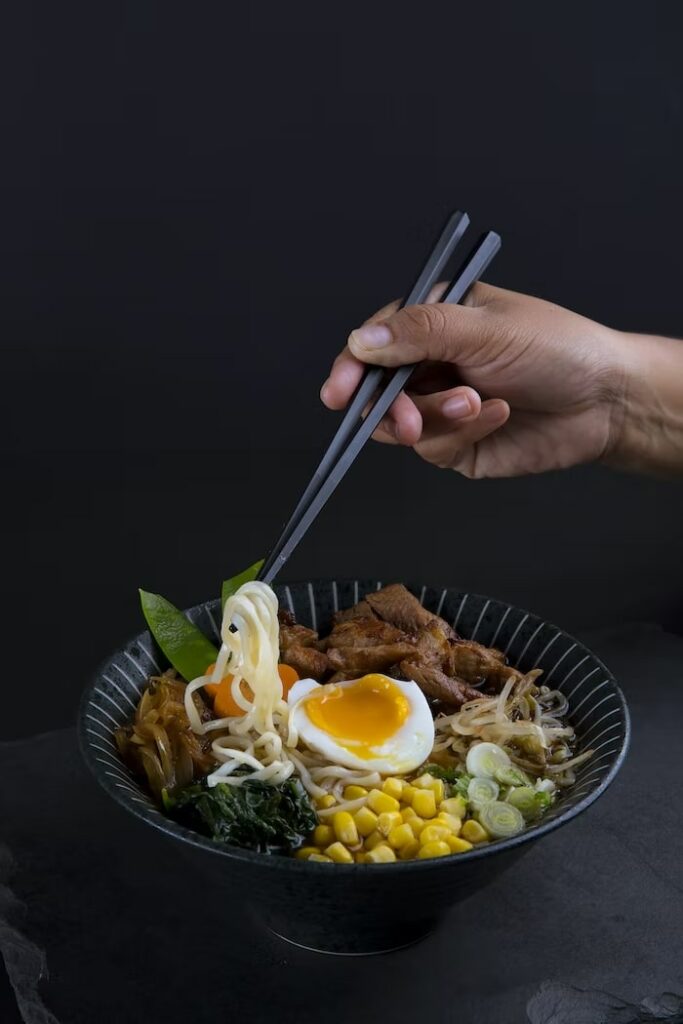
Dinners involve a handful of rules that one should observe to leave a good impression. These include the following:
| Timing | Common rules to follow |
| Before the dinner | • Don’t decline dinner invitations outright. • Wait to be seated. • Start eating only when the host eats. • Help pour drinks. |
| During dinner | • Making too many sounds during eating may be rude. • Avoid eating too much rice. • Use serving utensils instead of your own chopsticks when getting food from the common plates. |
| After dinner | • Put your chopsticks on the chopstick rest, not in your bowl. • Leave a small amount of food on your plate. • Do not eat the last piece from a serving tray. |
Let’s go into more detail on the rules and tips for how to behave during and after meals in Hong Kong:
Tip 1: Don’t surprise your host
When invited to dinner, it is best to let them know that you are arriving so as to not surprise them. Hong Kongers find it rude if you do not allow them to prepare for your arrival, you see.
Tip 2: Don’t outright decline dinner invitations
Hong Kongers also find it rude when you decline invitations to dinners. If you cannot find the time, suggest a different schedule instead of outright declining.
Tip 3: Wait for hosts to introduce you in small gatherings
In small gatherings, the host will usually introduce their guests, so it is customary to wait until they introduce you and have you seated.
In larger functions, you can introduce yourself immediately to colleagues and other guests.
Tip 4: Let the host eat before you
And when dinner starts, it is respectful to wait for the host to start eating before you do. You may also help in pouring drinks and serving people, although it is not necessary.
You should also allow the host to begin a dinner toast. Once they are done or you are invited to do so, be sure to rise and thank the host for their hospitality and the people present.
Tip 5: Try every dish served
When the meal begins, you should try getting a taste of every dish that is served.
Not only will you enjoy the meal more, but you will also have more chances to compliment the chef and the host this way.
Tip 6: Avoid eating too much rice
Hong Kongers, like other Asians, enjoy their meals with rice. However, try to avoid taking or eating too much during your meals.
Rice is often served as a filler, and eating too much of it could show that you do not enjoy the main dishes offered. It may also be seen as a sign that the host did not provide enough food, prompting you to fill yourself with grains instead.
Tip 7: Make only as much noise as your host does when eating
Interestingly enough, burping, slurping, and other sounds made during eating could be seen as rude or complimentary depending on the people you are with.
When in doubt, it is best to follow the adage “when in Rome, do as the Romans do,” or Hong Konger in this case.
Tip 8: Do not use your chopsticks when taking from the serving tray
Also, food is usually served accompanied by serving utensils such as chopsticks, spoons, and scoops. Use those tools instead of your personal chopsticks for the sake of cleanliness and respect.
Tip 9: Don’t appear too eager to take the last piece or second servings
When offered a second serving, decline at least once to not seem gluttonous. If there is only one more piece in the serving tray, it is best not to pick it up.
Tip 10: Leave some food on your plate
Speaking of spare food, you should leave a small amount of food on your plate to signal that you’re done eating.
In Hong Kong, hosts are expected to keep guests’ plates filled. Keeping a small amount of food on your plate signals that the host was generous enough to give you excessive amounts of food to eat.
As long as you keep finishing your food, people might think you want more or that you are saying that the host did not serve enough.
Quick Tips on Superstitions about Food and Dining
Hong Kong’s dining is also affected by certain superstitious beliefs. These must be followed so as to not offend Hong Kongers.
Here are two of the things to look out for first:
- One of these includes not sticking your chopsticks into a bowl or dish. Having your chopsticks upright is reminiscent of incense burning over someone’s grave or tomb, which is a bad omen.
- If you are served fish, do not flip them over as it is an imagery of a boat capsizing, hinting at death or fall from prosperity.
What are the rules to follow for tea in Hong Kong?
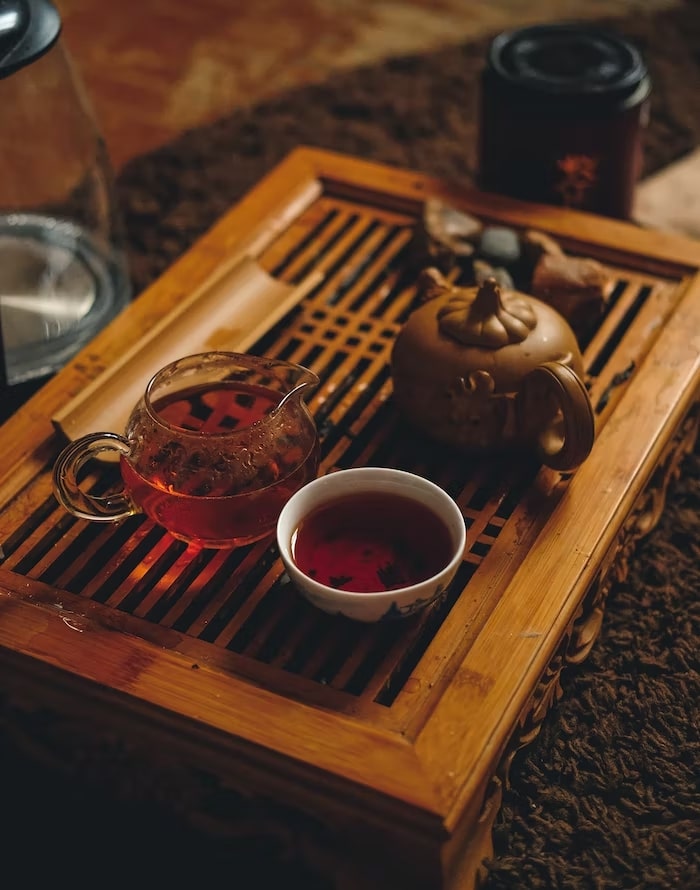
Tea is an essential part of dinners and meetings in Hong Kong and other Asian countries, and for it, there are drinking customs you should follow.
- First and foremost, never pick up your teacup before your host does. Allow the host to drink first as a sign of respect.
- Once the host leaves their tea untouched, that is usually a sign that the meeting has adjourned.
- You may notice people tapping the table with two fingers as they have their cups filled. This is normal and you may do so, too, as it is a subtle sign of appreciation.
- While you can add cream and sugar to your drink, Hong Kongers see this as a weird Western habit. However, it is not exactly frowned upon to do it – just be mindful of this if you wish to fit in.
- To signal to the waiter that your teapot needs more water, you can leave the lid upside down.
How do you properly give and receive gifts in Hong Kong?
| Action | Common rules to follow |
| DO | • Always bring a gift whenever visiting someone’s home. • Accept and receive gifts with both hands. • Wrap your gift beautifully with red or gold paper. • Give gifts when first meeting. • Delay the opening of gifts until you get home, to avoid embarrassing the giver in case their gift is not as luxurious as others. • Decline a gift at least once or twice before accepting it, to show humility. |
| DON’T | • Give civil servants gifts (it’s illegal in Hong Kong!). • Give items in odd numbers or in numbers of four. • Give cutting tools, clocks, and shoes as gifts. • Immediately open gifts received. |
Gifts You Should Give in Hong Kong
When visiting a home or meeting a person for the first time, it is customary to bring them a gift as a sign of friendship. Common gifts for this include these:
- Exotic alcohol
- Pens
- Fruits
- Flowers
- Sweets
For other occasions, it often depends on the event, its significance, and the person’s preferences.
Gifts You Shouldn’t Give in Hong Kong
Hong Kongers and Chinese people dislike the topics of falling out of prosperity and death. As such, items that symbolise these events should never be given as a gift.
These would include giving clocks. Clocks not only represent death, but the Cantonese phrase for giving a clock sounds similar to the phrase denoting paying final respects to the family.
However, watches are decent and acceptable gifts.
Handkerchiefs, umbrellas, and straw sandals are also taboo gifts since they are often used in mourning and wakes. In addition, you should also avoid giving white or red flowers, as these colours symbolise grief and blood.
Items such as blankets represent a decline in wealth and should be avoided. Other items you should avoid include cutting tools such as scissors and knives since they represent that you wish to cut your ties or relationship with the person.
Shoes are also bad gifts since it signifies that you want the person to run away from you.
Lucky Colours and Numbers in Gift-giving
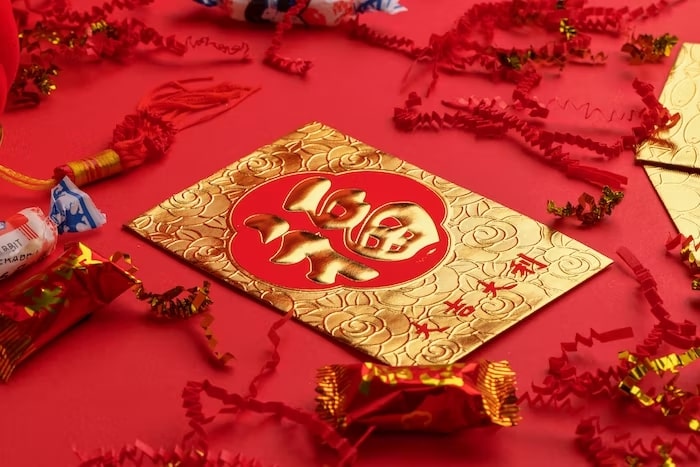
Colours and numbers also play a significant role when it comes to gift giving here. For example, the colours red and gold are considered lucky, so they are often used when wrapping gifts.
However, the colours blue, white, and black signify sadness and unluckiness, so you should avoid using them as wrapping paper.
You should also avoid giving items in odd numbers, as these are considered unlucky. In addition, avoid giving items in fours as the Cantonese word for “four” sounds the same as the word for “death” or “to die.”
If you want to give gifts in large quantities, consider giving them in eights instead. This is because the Chinese word for “eight” is similar to the word for “wealth” or “prosperity.”
What behaviours are considered proper and improper in Hong Kong’s business settings?
| Action | Common rules to follow |
| DO | • Have business cards ready. • Be punctual. • Involve geomancers and feng shui experts. |
| DON’T | • Expect a quick negotiation. • Set up a meeting during Chinese New Year. • Bring your spouse to business dinners. |
Most behaviours expected of you in corporate or business settings involve respecting one’s seniority, time, and relationships.
As such, remembering to be punctual and humble is a must in order to leave a good impression and avoid improper acts.
Things to Do When Setting Up Meetings

When setting up a meeting, it is best to set a date a month or two in advance. A geomancer or feng shui expert may also be consulted as to the best time to conduct meetings.
Feng shui experts are an essential part of business dealings in Hong Kong. They are usually consulted with regard to opening dates, the arrangement of furniture within offices, and other facilities.
In addition to consulting geomancers, you should also consider events and holidays when setting up a meeting. It is best to avoid celebrations such as the Chinese New Year since most offices are closed for the holidays.
When it comes to setting up meetings, you and your business partner’s spouses are usually not invited. With that in mind, you should not bring your spouse with you to a business dinner unless they are explicitly invited.
If you bring your husband or wife to a business meeting or dinner, you will not get anything done since business is not discussed with spouses around.
It is best not to ask whether or not you could bring your partner, too, as Hong Kongers will rarely say no in order to save face.
Things to Do During Meetings

When arriving at a meeting, always remember to be on time and to give the other party 30 minutes if they are arriving late as a courtesy.
You should also have your business cards ready, with one side printed in Cantonese and another in English. Much like giving gifts, you should hold the card with both hands and with the Cantonese side up.
You should also accept their card with both hands, and examine it carefully before putting it away. Never write on a person’s card in front of them, as they might deem it disrespectful.
It is common to sit in silence for a while when the meeting begins. Hong Kongers may remain silent for a while or begin with small talk before discussing business matters, so it is best to avoid jumping into negotiations immediately.
Negotiations and business deals in Hong Kong usually happen over the course of a few meetings, so being impatient may leave a bad impression.
You should also try to avoid losing your temper or using high-pressure tactics, as this would make the other party lose face and might avoid dealings with you in the future.
Most importantly, a deal’s price is usually more important than the quality of the output. As such, remember to leave room for negotiations and haggling when stating your starting price.
Quick Tips on Hong Kongers’ Businesses and Relationships
Hong Kongers are known to value personal relationships, and this is evident in the way most locals run their businesses. Most businessmen in Hong Kong personally know their business contacts.
This is because Hong Kong and Chinese businessmen will consider your relationship as long-term, so it is not surprising that they would want to know more about you.
As such, you should try not to take offence when a Hong Konger asks you a personal question. Locals usually talk about topics that some may find extremely personal abroad, but there is usually no ill will behind such questions or subjects.
